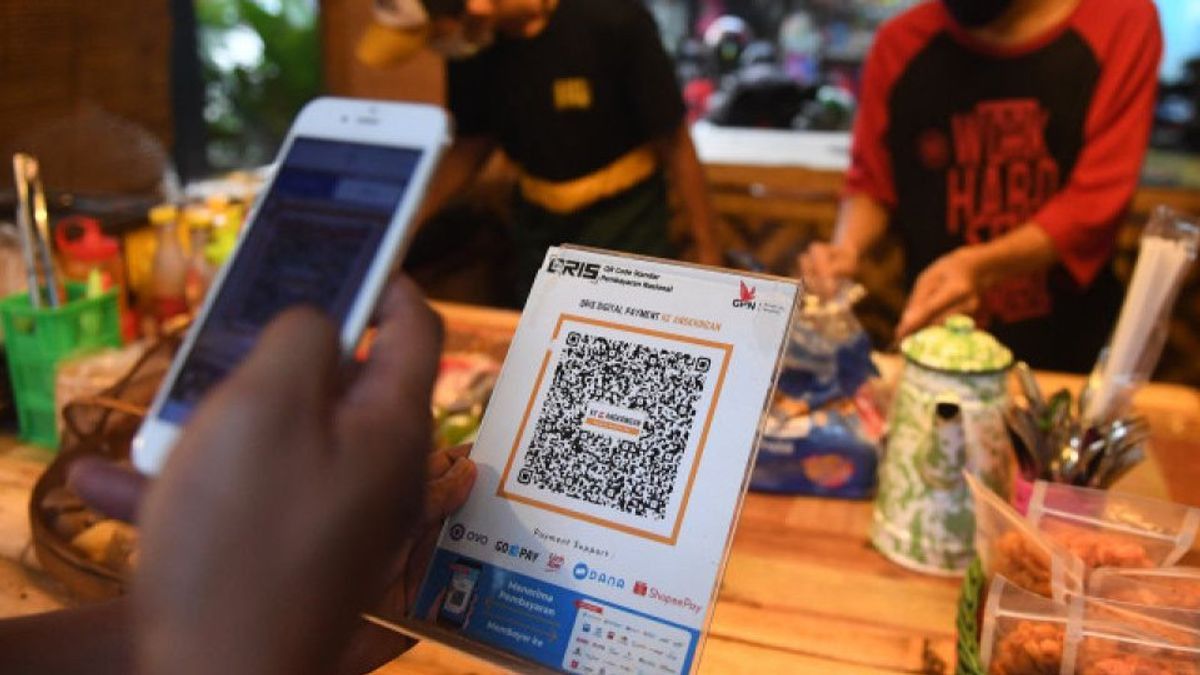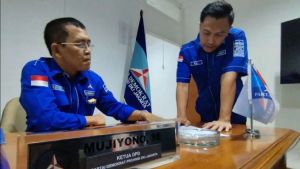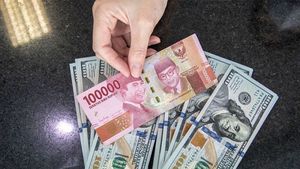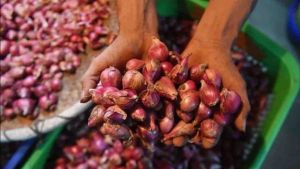JAKARTA - The use of the quick response code Indonesian standard (QRIS) payment system is still dominated by micro, small and medium enterprises (MSMEs). Of the 30 million merchants who use QRIS, 95% of them are MSMEs.
Head of the Department of MSME Development and Consumer Protection of Bank Indonesia Anastuty Kusumowardhani said BI had launched various programs. One of the main programs is to encourage MSMEs to go digital and go global.
"With good financial reports, MSMEs will find it easier to get access to financing from banks and financial institutions," he said at the Digital Financial Economy Festival (FEKDI) in Jakarta, last Saturday.
According to Bank Indonesia data, QRIS transactions in the second quarter of 2024 grew 226.54% on an annual basis, with the number of users reaching 50.50 million and the number of merchants as much as 32.71 million. Of these, 30.2 million of them are MSME merchants.
BI data in July 2024 stated that the nominal transaction of QRIS users' MSME merchants has reached IDR 32.86 trillion in 2024.
In addition to introducing QRIS as one of the payment systems, BI has also launched an Information System for Financial Information Listing Applications (SIAPIK) to assist MSMEs in making structured financial reports.
With good financial reports, MSMEs will find it easier to gain access to financing from banks and financial institutions.
Meanwhile, to encourage MSMEs to go global, Anastuty said that BI had published an export development module guidebook to help MSME players understand export requirements in various countries.
In addition, BI is also working with BI representative offices abroad, the Indonesian Embassy and the Indonesian Consulate General in the Republic of Indonesia, as well as related ministries to open promotion spaces for MSME products in foreign markets.
また読む:
Every year we participate in several events to increase exports (MSMEs). In fact, now we already have a permanent exhibition abroad," he said.
One example of the exhibition is the Indonesia House of Beans which shows off Indonesian coffee in several countries, such as Malaysia, Singapore, Japan, and the United States.
The English, Chinese, Japanese, Arabic, and French versions are automatically generated by the AI. So there may still be inaccuracies in translating, please always see Indonesian as our main language. (system supported by DigitalSiber.id)
















